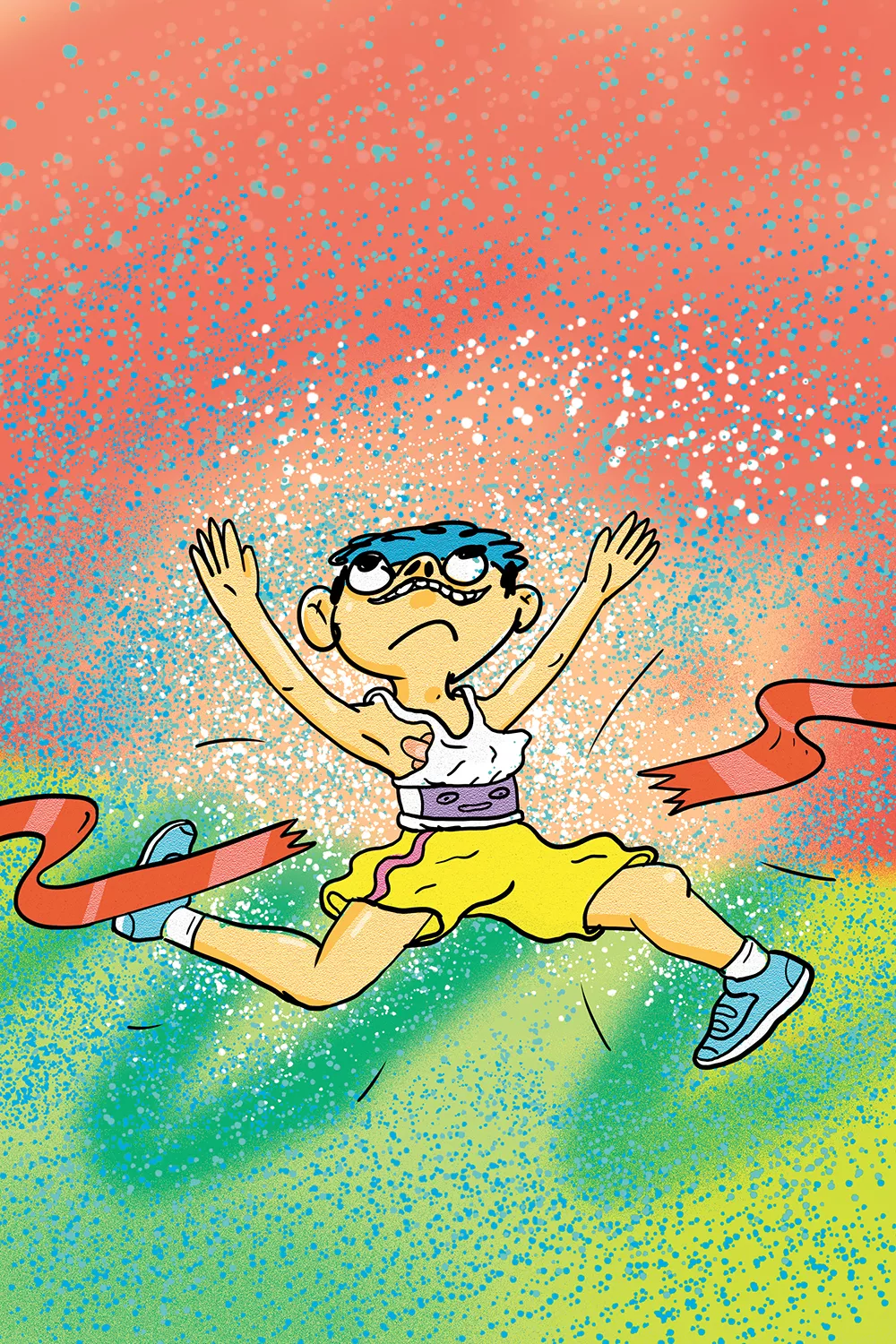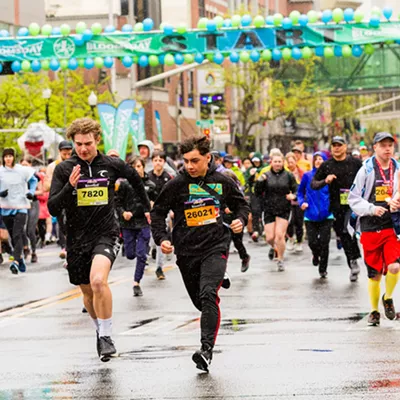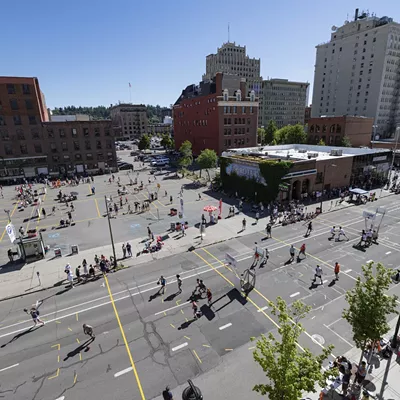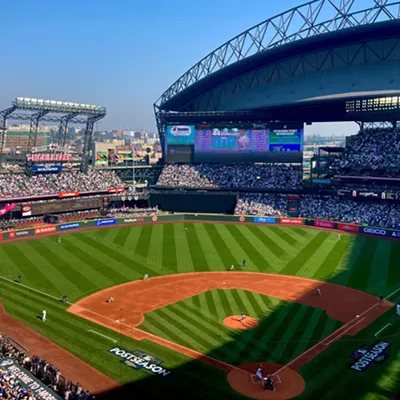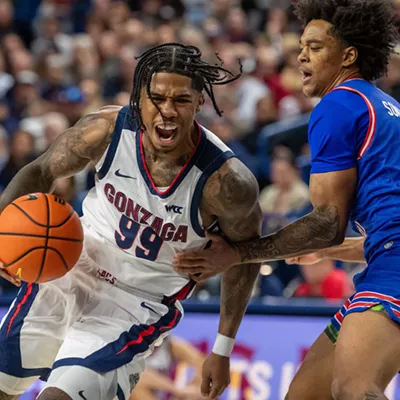Running is weird. Running is almost unnatural. In nature, running is fleeing and chasing, both of which are terrible. Running is for when the bus is hurtling away. Running is emergency walking.
As a child in the '90s I remember wondering if Nazis (or whoever, really) swept through the country with tanks and machine guns, how far could I run without stopping? Could I get away? Is that what the dudes in compression leggings and athletic shorts blitzing down the street are thinking about? Is the high-octane workout music spilling out their earbuds only there to numb the nausea of their constant waking nightmare?
Running became unnatural for me in grade school, when I watched Edgar Martinez, the Mariners' designated hitter, laboring around the bases and asked my stepdad why Edgar didn't run faster. I was told that his knees were bad, and that they were bad because he used them too much, that all his running and squatting and bending had taken its toll. I've never quite shook the faux-epiphany — that each step is one less remaining, that your knees are just waiting to fail.
In high school, I tried to run with our dog. She liked it less than I did. When the adrenaline was flowing and my defenses were down, Molly would fall behind and wrap the leash around a sign post so that when I ran out of slack I'd get whipped to a stop.
Running is showy. It's the act of putting one's health and vigor on display. There's a kind of moral superiority that hangs in the air between the runner and the one witnessing running. Wouldn't you like to be in such great shape? Wouldn't you like to be feeling this runner's high? Wouldn't you like to have this 26.2 sticker on the back of your Subaru, Rav-4 or CRV?
When I exercise, I sit on a recumbent bicycle at the Y and read a novel in a state of anxiety about what people are thinking of me, about my choice in novel, about the terrible thing the novel's protagonist has just done and don't they know that just because I'm reading this novel it doesn't mean I condone the protagonist's choices and that, in fact, I'm only reading this novel because my friend recommended it and then loaned it to me and then asked if I liked it so many times that I had to pick it up it but I actually hate it, completely and totally, but not so much as to stop reading it at the Y right this second? If the Y had a limestone cave cellar where I could bike in private, I'd be there. You could smell my dried sweat hanging in the air with the wheels of parmesan. Then I wouldn't have to hear men roaring and dropping weights, and I wouldn't have to share that weird look with Gonzaga English professor Tod Marshall every once-in-a-while when he can't place me — I was at that one workshop you taught once, Tod, the one at the Museum of Arts & Culture, where you gave me an issue of Poetry Northwest because I raised my hand when you asked if anyone read Poetry Northwest. Thanks.
Bicyclists exercise in public, too, but there is a function. At least in theory, bicyclists are headed somewhere. They're on their way to work. They're on their way to buy pasture pork and Swiss chard. Bicycling reduces carbon emissions.
But no one runs to work. There is no running-as-activism.
Marathons are weird.
Right out of college, I worked the Rock and Roll Marathon in Seattle as a cashier. The marathon rented out an event center and in order to pick up their running kits and check in, the runners had to wind a meandering maze lined with merchandise that ended at my cash register. I sold a lot of passes to the VIP Port-A-Potties. These, I was told, had smaller lines. I also sold a lot of nipple tape.
I'll admit I've never gone near Bloomsday. Never approached the chattering horde of strollers at the tail of each group, never earned my special T-shirt and come to work or school the next day victorious, one of God's rosy-cheeked Chosen. I understand I'm missing out. I'm not sorry. You can have it. Have a great time. ♦

